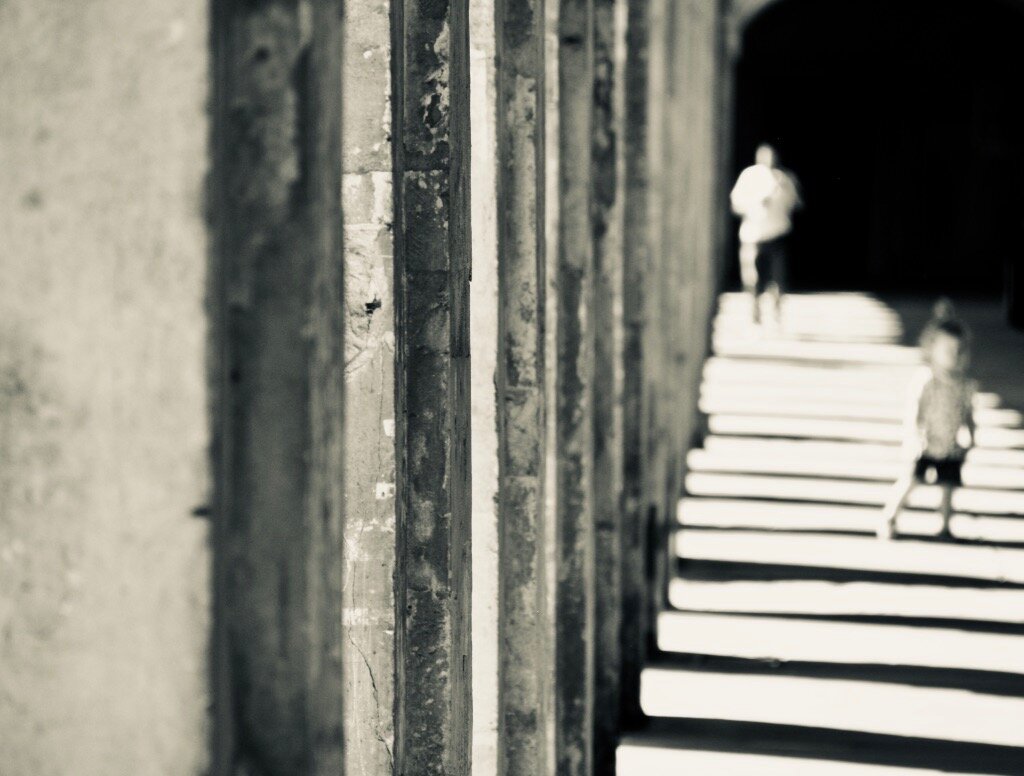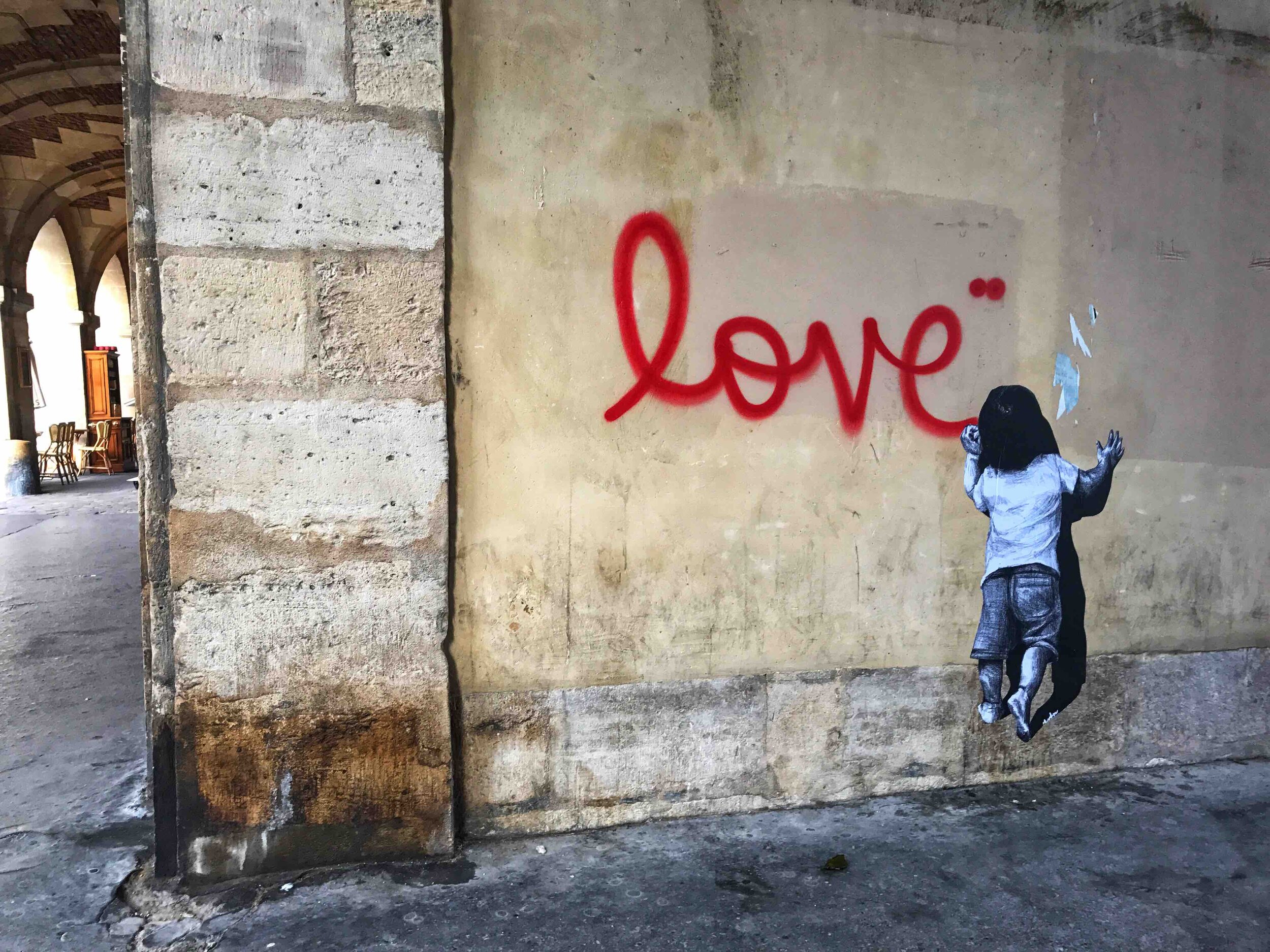Life is full of the most amazing spectacles. A little kid—little, little, a real little little kid—learning her mother tongue . . . it’s amazing. Even before she can say a word, she understands a tremendous amount. You can talk to the baby, and the baby understands you. I mean, you might not ask the baby what she thinks of the Objective Collapse Model in quantum physics. But my point is that the baby understands a lot, thinks a lot, senses a lot, and knows a lot of words before she says her first sentence. Which is probably going to be “That Schrödinger kitty had better be alive, or I’m going to cry. Pass the bottle, please.”
Suppose the baby is about two or three years old now. We’ll call her Mileva. She speaks normally for someone her age (kitty and bottle, yes; Schrödinger, probably not). And she gets upset at something. Her mother accuses her of drawing equations on the living room wall. The injustice of it! Mileva gets really, really upset, and rightly so. She cries, screams, yells, sobs, kicks the equation. And her mom says, “Use your words, honey. Use your words.” And Mileva—she’s really little, and she’s really upset—well, Mileva finds a few words. “It’s unfair. I didn’t do it. The kitty did it, in all probability. If he’s alive. Which I hope he is.” Bwaaaaaaaah.
Mileva might not formulate her defense so astutely, but she will find words, and she will articulate her strong emotions, and she will rebut her mother successfully. And she will grow up to be an intelligent, alert, and sensitive speaker, with a vocabulary of tens of thousands of words, and the skill of mixing and matching her words in potentially millions and billions of different combinations.
Vocabulary comes from the Latin “vox,” which means voice, and which comes from an even earlier root, *wekw, which in Proto-Indo-European means to speak. It’s all related: a vocabulary gives you voice and helps you speak. Here’s a screenshot from my favorite website, www.etymonline.com.
I’d like to propose a theory about words. Like all theories, it’s absolutely true! For me, anyway, and that’s why I’m sharing it with you!
Let’s take the word complex, as in, “Pedro, your blog posts are painfully complex.” We’ll look it up in www.etymonline.com and copy and paste the definition, visually reformatting it a little bit.
How nifty is that? Something complex is something that weaves and braids and entwines multiple strands into an intricate and encompassing whole.
The more you look into a word, the richer the word becomes. A word’s roots are particularly enriching, because they invite you to see or to imagine the word’s deeper meanings. We’ll go further in, and we’ll look “to plait” up.
And that’s my theory about words. We start with a word in English; its immediate root is often French; the root of the root tends to come from Latin or Greek; the root of the root of the root comes from Proto-Indo-European; and the root of the root of the root of the root comes from eternity and is an archetypal notion.
The archetype is a universal, timeless, fundamental, all-embracing, all-encircling concept or energy that manifests itself in numberless forms. In this case, plait and plaiting are “manifested” in the term complexity. But plaiting, braiding, weaving, and folding manifest themselves in multiple ways, physically and symbolically, in our lives. To be alert to the underlying similarity of these manifestations—that is, their archetype—is to be alert to the promise of coherence.
When you embody this promise, your daily existence takes on a quasi-mystical hue, because you start seeing relationships among seemingly disparate activities: folding a piece of paper, plaiting your daughter’s hair, crossing your fingers, weaving your arguments and examples into a blog post . . . despite their tremendous diversity, all these activities are children of the goddess *Plek.
And the moral of this complex story?
Words are your friends. Roots are the friends of words. Archetypes are the friends of roots.
The more words, the more friends!
©2020, Pedro de Alcantara. I took all photos at the Place des Vosges in central Paris.






